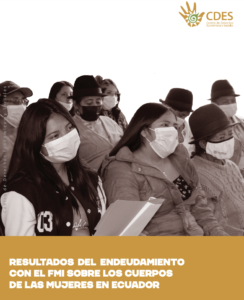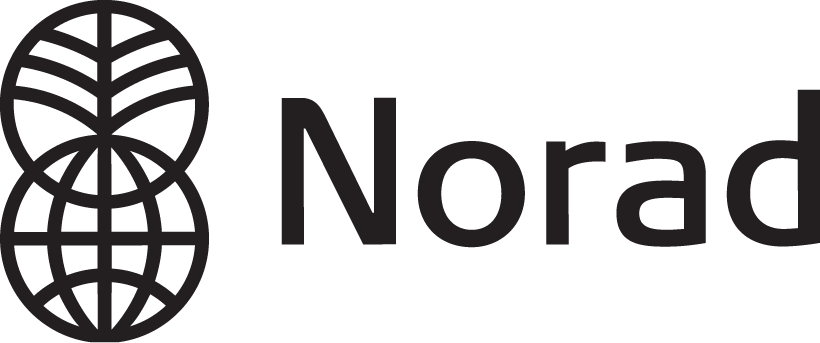Economic Justice for All
The world needs more just economic systems now
Already before the global Covid-19 crisis, the issues of debt management and increasing the mobilisation of domestic resources for development were areas that needed urgent action at the national, regional and global levels. The number of developing countries with unsustainable debt levels were alarmingly high, and illicit financial flows were continuing to drain countries of hundreds of billions of dollars in lost tax income every year. The interconnected health-, social- and economic crises unleashed by the Covid-19 pandemic have turned a critical situation even worse. Existing inequalities, including economic and gender inequalities, are being exacerbated, and those most in need stand the risk of suffering the hardest impacts. Lack of financing for development, including for essential public services and protection of human rights, is a central part of the problem. The most important and sustainable source of revenue, namely tax income, continues to be undermined by international tax dodging by multinational corporations and wealthy individuals.
This project provides a unique and extremely timely opportunity to reinforce the capacity, interconnectedness and active role of civil society organisations working on debt and tax justice in developing countries around the world. Through a joint, targeted international effort, the aim is to turn political promises on financing for development into action, and strengthen public accountability and good governance at the national, regional and global levels. In the context of the global state of world, struggle for a more just world for all has never been more urgent or more relevant.

Debt management, sustainability and justice
A global south debt crisis is no longer a risk but a very tangible reality. Increasing debt payments are crippling the governments’ ability to provide essential public services and tackle the climate crisis in many countries. Debt service, including both domestic and external debt payments, is absorbing an average 38 per cent of budget revenue and 30 per cent of spending across the South, rising to 54 per cent of revenue and 40 per cent of spending in Africa, according to a Debt Service Watch report. These figures are more than twice the levels faced by low-income countries before the Highly Indebted Poor Countries (HIPC) Initiative and the Multilateral Debt Relief Initiative (MDRI). Therefore, this is already the worst debt crisis the world has ever seen.

Illicit financial flows and domestic resource mobilisation
Taxation is a key tool for correcting economic inequalities. This is true for inequalities between countries, where the design of the rules, including the approach to allocating profits of multinational corporations between countries, is central to the reduction of gaps between poor and wealthy countries. It is also true for inequalities within countries, where a progressive tax system is vital for reallocating resources from the richest to the poorest and for financing public services.
However, if international and national tax systems are designed wrongly, they can also have the effect of increasing inequalities within and between countries. For example, when international loopholes and tax havens allow wealthy individuals and corporations to dodge taxes at the national level, governments can end up being faced with two negative options, namely austerity or regressive tax policies, which have a disproportionally hard impact on the poorest. Both of these options can end up increasing economic inequalities within countries.
Furthermore, since women tend to rely more heavily on public services, government spending cuts also risk increasing gender inequalities.

Countries
Kenya
Kenya is a lower-middle-income country with a GDP of around US$100 billion, and is furthermore one of the most stable and geopolitically important economies within East Africa. And yet a number of factors, including the effects of illicit financial flows, debt distress, the Covid-19 pandemic and the challenges of climate change, have wiped out much-needed public resources and created a difficult economic situation, including a high risk of debt distress.
Ecuador
Ecuador is an upper-middle-income country currently facing a financial crisis. During the period 2007-2017, Ecuador experienced economic and social progress, partly thanks to the reduction of its external debt after a debt audit, but during the last few years, the situation has taken a sharp turn in a negative direction. The country was already experiencing a recession prior to the Covid-19 pandemic and, despite a mild post-pandemical bounce-back, the negative developments have continued. As a result, inequalities, poverty-levels and violence have sky-rocketed. Severe debt distress and harsh austerity programmes, linked to an IMF reform programme, are central elements of the recent social and economic developments in Ecuador.
Peru
Peru is an upper-middle-income country with a GDP of over US$200 billion. The country was one of the hardest impacted by the Covid-19 pandemic, which also caused a backslide in terms of the social progress achieved in recent decades, and the level of extreme poverty reached over 5 per cent in 2020. Especially due to climate-related shocks and social unrest, the economy of Peru furthermore experienced a contraction in 2023.
Morocco
Morocco is a lower-middle-income country with a GDP of around US$ 130 billion. In recent years, Morocco’s external debt has been growing substantially and the country is currently in a “gradual process of fiscal consolidation”. However, at the same time, Morocco’s tax revenues continue to be eroded by illicit financial flows. In the coming years, Morocco is also at risk of being directly impacted by the EU’s new Carbon Border Adjustment Mechanism.
Zambia
Zambia is registered by the UN as one of the world’s least developed countries, and a recent poverty assessment in Zambia found the level of extreme poverty to be around 48 per cent in 2022, compared to around 41 per cent in 2015.
Already before the Covid-19 pandemic, Zambia was struggling with severe debt problems. Meanwhile, on the revenue side, Zambia continues to suffer from heavy impacts of illicit financial flows.
Grenada
Grenada is an upper-middle-income country with a small and largely tourism-based economy. As a Caribbean island, Grenada is heavily exposed to the impacts of climate change, including the increasing risk of hurricanes.
In general, the confluence of high debt levels, climate vulnerabilities and other economic vulnerabilities represents an existential threat to the Caribbean region. Grenada is a perfect illustration of these dynamics and of the need for systemic solutions that address the complex developmental challenges faced by small island developing states
Bangladesh
Bangladesh is registered by the UN as one of the world’s least developed countries. Although poverty rates have been reduced substantially over the last 20 years, by 2022, over 18 per cent of Bangladeshis were still counted as living in poverty and over 5 per cent were considered as living in extreme poverty. Meanwhile, income inequality is high and on the rise.
Nepal
Nepal is registered by the UN as one of the world’s least developed countries, and Nepal’s economy is heavily reliant on factors such as remittances and donor funding. While the country has made substantial progress with reducing poverty, wealth inequality is a growing problem, and according to a newly released Living Standards Survey for Nepal, approximately 20 per cent of the population is still living in poverty.
Philippines
The Philippines is a lower-middle-income country with a GDP of around US$400 billion. Remittances play a major role in the economy, with the World Bank estimating that the Philippines received around US$40 billion from this source in 2023 alone – surpassed only by India, Mexico and China.
The Covid-19 pandemic had major impacts on the Philippines, including on the country’s debt situation. Meanwhile, the level of domestic tax revenues is heavily impacted by illicit financial flows and a revenue-eroding tax reform.
Partners
Donors
This website was created and maintained with co-funding from the European Union, Norad and Brot für die Welt. Its contents are the sole responsibility of the partners involved in this project and do not necessarily reflect the views of the European Union, Norad and Brot für die Welt.
Related Websites
End Inequalities
Features the work of a project that aims to contribute to reducing inequalities both within and between countries, including the specific and extreme problems of economic and gender inequalities in Indonesia and the India, as well as the global inequalities caused or exacerbated by tax dodging and illicit financial flows.
Civil Society Financing for Development (FfD) Mechanism
An international network of organisations engaged in the UN process on Financing for Development. The group works together to promote democratic global economic governance that works in the interest of people and planet.















